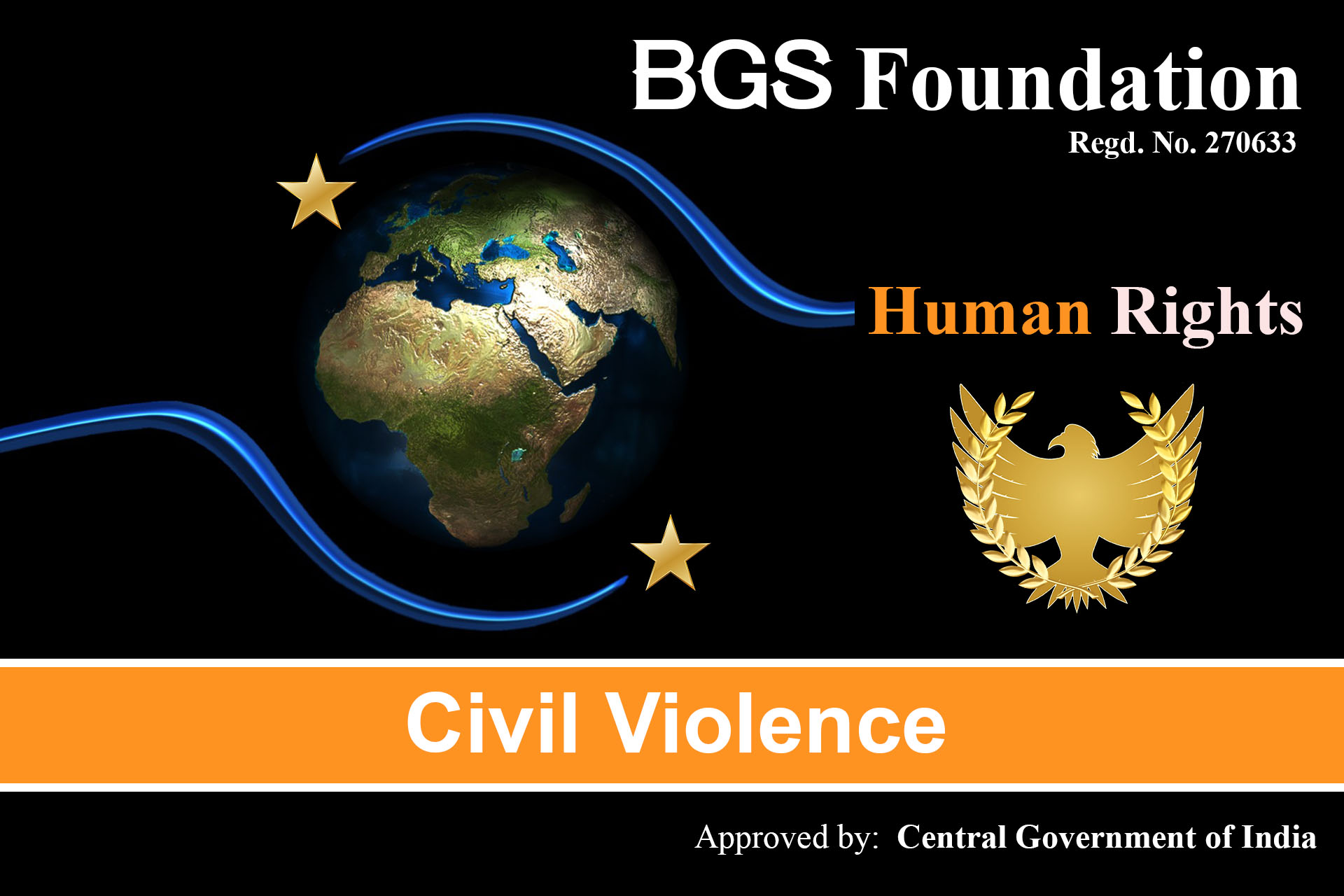

CIVIL VIOLENCE
Violence against women, girls and children are one of the most pervasive and barbaric violations of human rights. It is shameful that a society that prides itself on being progressive and undeniably modern in many respects is also one characterised by appalling atrocities meted against their own flesh and blood so to say. This state of affairs warrants serious attention from everyone who truly believes in the ideal of an equal and just society Violence against women, girls and children reverses the gains of democracy and threatens peace and development across the globe. The statistics are glaring and shocking; one in every three girls will be married off before they reach teenage hood, more than 140 million girls are abused through female genital mutilation and women are raped as an act of war in most parts of Africa where conflict abounds. In a world that is riddled with extreme violence of all kinds the time has come to promote a culture of human rights. As a society, we need more than just campaigns to end these horrible atrocities and the impunity that has characterised responses from governments around the world. It is unacceptable that women, girls, and children are not free to live as human beings.
25 MOST VIOLENT PLACES IN THE WORLD
What is the role of civil society?
As a body of organisations that work with people at the community level, one primary role is to ensure that government legislation is enforced and that the perpetrators of violence are apprehended and handed down maximum sentences. It is important that governments are held accountable to enforce their laws, policies and interventions in prohibiting all forms of violence. At the same time, civil society should ensure that national legislation meets the requirements of international agreements that aim to put an end to violence against women, girls and children, such as the agreements drafted by the United Nations Commission on the Status of Women.
Moreover, civil society has a duty to promote a culture of justice and support for victims of violence. Civil society organisations need to ensure that the government provides timeous, adequate and high-quality multi-sectoral services to survivors. Delayed services delay justice and render survivors of violence vulnerable to hopelessness. In instances where such services are not accessible, government officials entrusted with this task must be held responsible and prosecuted for negligence.
At the same time, civil society organisations should be at the forefront of educating women, girls, and children about their rights. These capacity building initiatives must include boys and men to ensure that cultural norms that perpetuate and engender discrimination are addressed. Awareness raising campaigns and institutional and legal reforms by governments around the world can also promote a culture of equality.
More importantly, it is imperative that civil society organisations ensure that accurate, reliable and meaningful data on violence against women, girls and children is collected. This data must be collected timeously and promptly. There is an urgent need for civil society organisations to enhance their own data collection, analysis, dissemination and utilisation of synthesised data to inform decision making. This approach to the fight against violence against women, girls and children builds a crucial knowledge base that supports multi-sectoral interventions.
Linked to the above point, partnerships with other local, national and international agencies are crucial in building a critical mass of knowledge to interpret trends across global regions. Thus, global strategies would be informed by experiences and actions across the world.
Last but not least, civil society is obligated to ensure that the economic emancipation of women is highly prioritised by governments worldwide, especially in developing countries, where women are still undervalued and remain largely unrecognised. It is imperative that women are supported to enjoy equal access to opportunities and resources, as well as to opportunities for societal leadership and participation. A just and equal society will only be possible if the structural conditions that stifle efforts to advance women are addressed.
In conclusion, the struggle to end violence against women, girls and children is on-going. It will not end until women, girls and children are safe and have a voice in all matters of societal development. A world free of violence is possible. Let us make sure that this ideal is realised in our lifetime.
To donate click on the Donate Now button and select the cause for which you want to donate.
To take action click on the Take Action button and rest be assured that your identity will be kept confidential.
Approved by: CENTRAL GOVERNMENT OF INDIA
Regd. no.: 270633
Donate Now